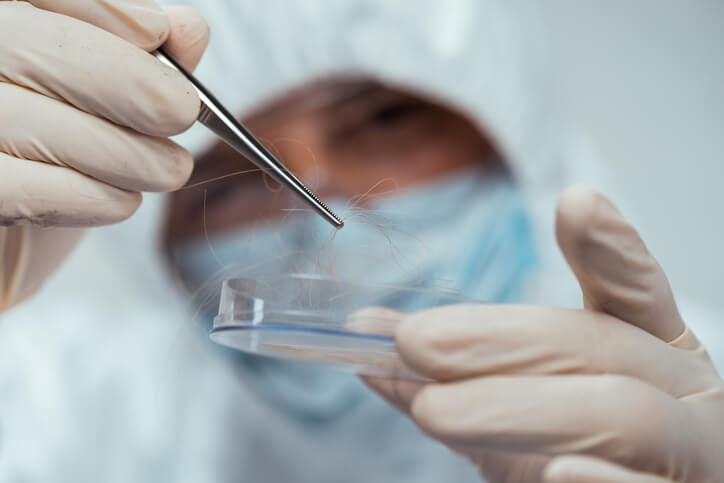DNA testing is a double-edged sword. Law enforcement has solved countless cold cases as well as current cases based on DNA evidence. The problem arises from the fact that, like almost everything, DNA testing is not 100% reliable. A miscarriage of justice can result when someone gets wrongfully convicted based on incorrect DNA results or interpretations.
Fighting a wrongful conviction based on inaccurate DNA evidence involves sophisticated litigation. A Washington criminal defense attorney could help you if you got caught in the web of unreliable forensic evidence. Let’s explore the issue of, Is DNA testing reliable in criminal cases?
Does DNA Evidence Point a Guilty Finger at One Individual?
Not really. Contrary to what you see on television shows, DNA testing almost never definitively says that the suspect or defendant committed the crime. DNA evidence is far more reliable to eliminate a suspect rather than to pin the blame on that person. In other words, DNA evidence could reveal that suspect A might have committed the crime, but that suspect B could not have committed the crime.
Can DNA Testing Get Used to Confuse a Jury?
Yes. For example, DNA testing might establish that the defendant falls within a group of only 3% of the population who have certain genetic markers. With the US population exceeding 330 million people, that seemingly small group contains 9.9 million individuals. Eliminating 97% of the population is not enough to support a conviction.
Does DNA Testing Pinpoint One Person Out of a Family?
DNA results might find a match, but the match would also be to any number of close relatives of that individual. It could be easy to convict one person for a crime committed by that individual’s brother, father, cousin, or son. That detail does not always get pointed out to the jury.
Does Law Enforcement Use Damaged DNA Samples or Partial DNA Profiles?
Yes, and when they do, miscarriages of justice can happen. Moisture or extreme heat or cold can damage a DNA sample. Also, the passage of time can corrupt a DNA sample.
A damaged DNA sample will not provide all of the essential markers needed for a reliable DNA profile. In a perfect world, scientists can examine a complete DNA sample and find at least 16 different aspects of the individual’s DNA. Incomplete samples might only describe one trait of a person, like the color of their hair.
Can a Full DNA Sample Identify the Wrong Person?
Yes. There might be DNA material from more than one person in the sample. If the evidence team at the scene or the lab accidentally combines the material from multiple people, it is possible to generate one DNA profile. That profile could be highly inaccurate.
How the “CSI Effect” Can Contribute to Wrongful Convictions
People have a great deal of respect for forensic evidence. It appears to be scientific and a little magical at the same time. Thanks to television shows, we are used to forensic evidence being the unquestionable proof that convicts guilty people.
There are two problems with this situation. One, juries can be hesitant to convict a person if there is no available DNA evidence. Two, juries give forensic evidence more weight than it deserves. At best, DNA evidence might show a likelihood that a certain individual committed a crime more than some random person off the street. DNA results should not be the only evidence to support a conviction.
If you are facing criminal charges that might involve the use of forensic evidence, you will want to talk to a Washington criminal defense attorney right away to protect your legal rights. If you are in need of legal assistance contact Jennifer today.
DISCLAIMER: This post is intended to share my perspective, insights, and some general information on various aspects of criminal cases. It is not legal advice and is not intended to substitute for legal advice. You should consult an attorney to obtain legal advice for your individual situation and case.

